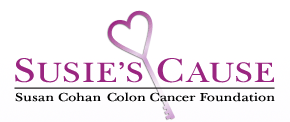
Last year alone, over 50,000 people died of colon cancer. It is the second leading cause of cancer related deaths of men and women. This is due, in part, to the lack of comfort about discussing the disease and proper screening efforts. The encouraging truth is that this disease is over 90% curable when detected and treated early.
This year on Tuesday November 27, 2012, Susie’s Cause is partnering with #GivingTuesday to raise funds to support our communities. All donations are sent directly to Susie’s Cause.
Can you see it in your heart to help us with this important goal? Every donation helps us get the word out, provide more services and host bigger and better Health Fairs in more communities.
Health Fairs
Your donation on #GivingTuesday will help our upcoming Health Fairs make a bigger impact on the communities we serve. These Health Fairs focus on underserved communities where statistically, colon cancer diagnosis and death rates are alarmingly high. Each event is designated to provide a day of overall health education with a particular focus on colon cancer screening and prevention combined with entertainment, fun, and food for the entire family. Held in conjunction with local hospitals, medical centers and health organizations, the fairs provide an opportunity for the community to take advantage of screenings for blood pressure, heart rate and other services conducted by our partner health institutions.
2013 Program
We are currently developing our program for 2013 and plan to kick off the next fair in the Spring during Colon Cancer Awareness Month. Funding for 2013 comes from corporate and public donations. Any amount you wish to give is welcomed and appreciated. Donations made through #GivingTuesday are easy, safe, and secure. To learn more about our community health initiatives and support our program, visit us at #GivingTuesday. Create your own fundraising page and invite your family and friends to support our programs.
We are currently developing our program for 2013 and plan to kick off the next fair in the Spring during Colon Cancer Awareness Month. Funding for 2013 comes from corporate and public donations. Any amount you wish to give is welcomed and appreciated. Donations made through #GivingTuesday are easy, safe, and secure. To learn more about our community health initiatives and support our program, visit us at #GivingTuesday. Create your own fundraising page and invite your family and friends to support our programs.
Here's How
1.
Visit#GivingTuesday
2. Click the green "Join Now" button
3. Create your account or sign if you have an account
4. Create your own personal fundraising page – complete with photo and video
5. Make your donation
6. Email the link to your fundraising page to family and friends.
2. Click the green "Join Now" button
3. Create your account or sign if you have an account
4. Create your own personal fundraising page – complete with photo and video
5. Make your donation
6. Email the link to your fundraising page to family and friends.
To learn more about the national #GivingTuesday participants and activities or to
join the celebration of giving, please visit:www.givingtuesday.org



















